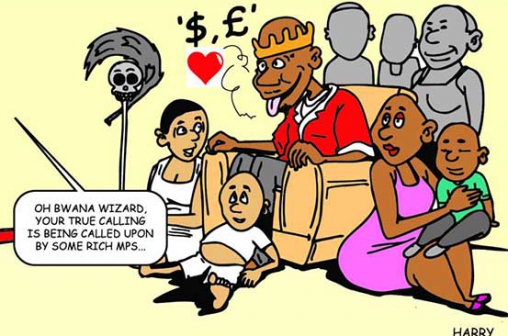×
The Standard e-Paper
Home To Bold Columnists

The circulation departments of the newspapers that had news of the death of a man known as Ayub Kathata from in Meru County may have noted an unusual spike in sales on that day.
They probably credited the increase in readership to the human-interest stories on the size of his family, which included a 35 wives, 131 children and numerous great-grandchildren.